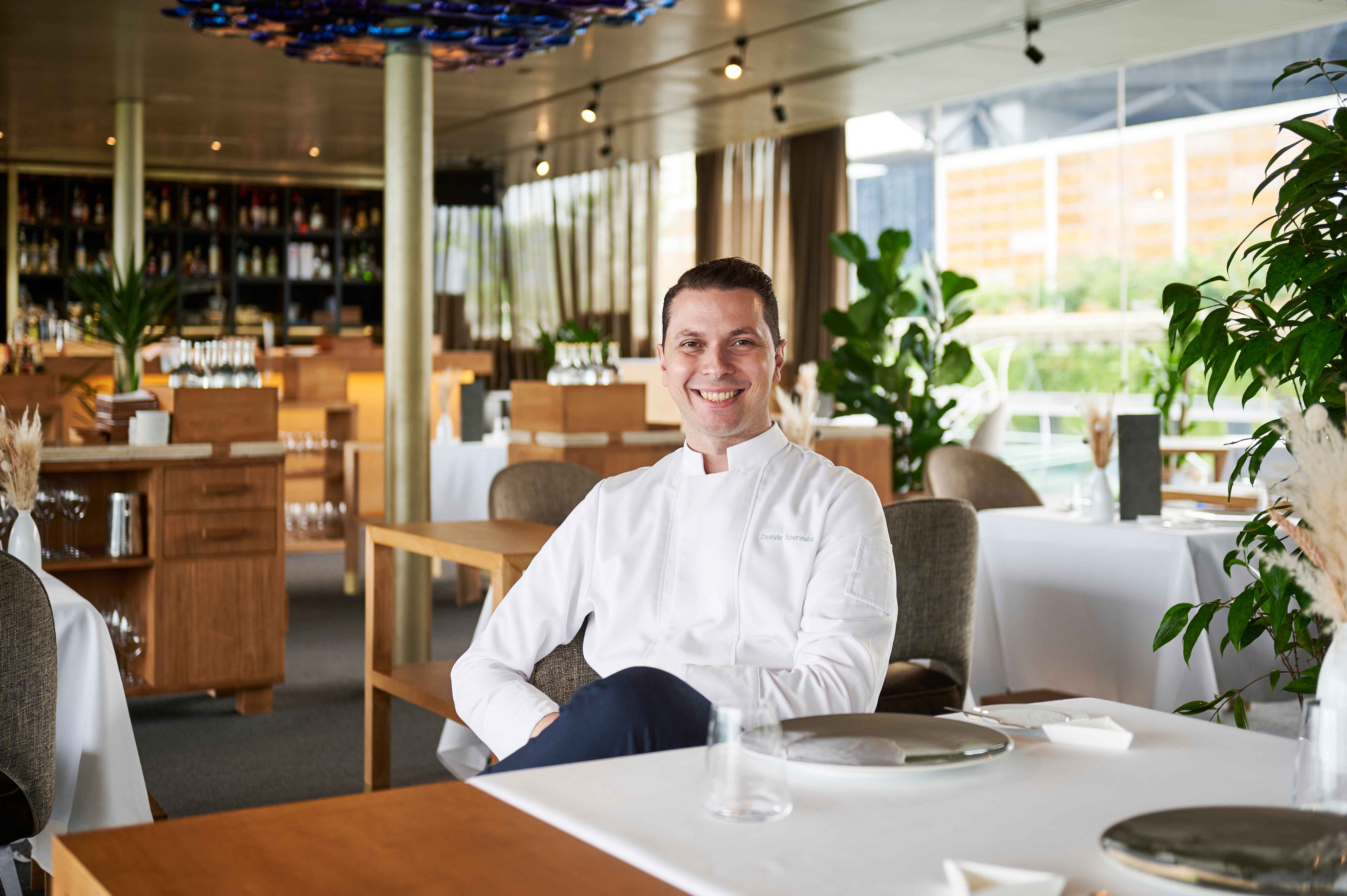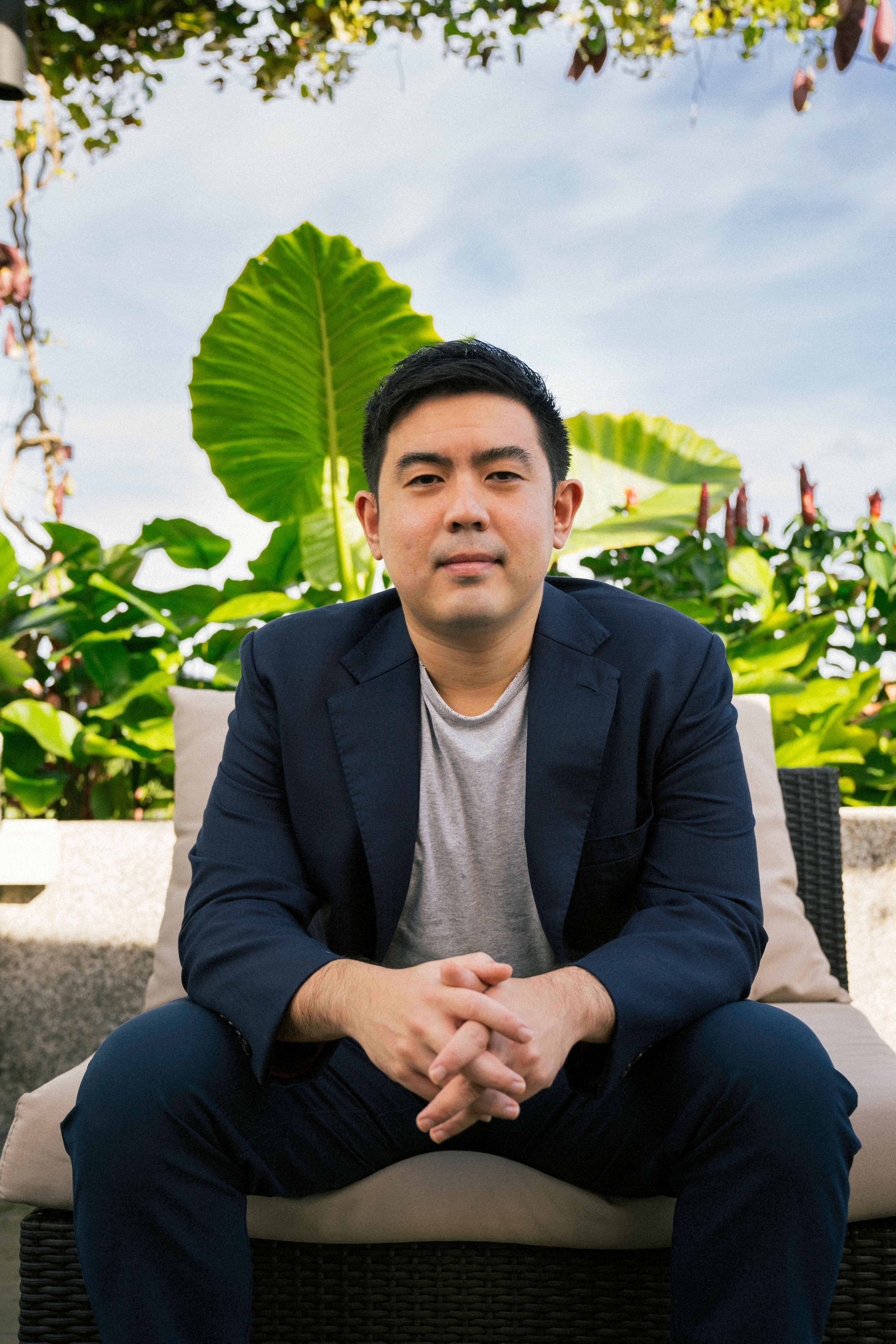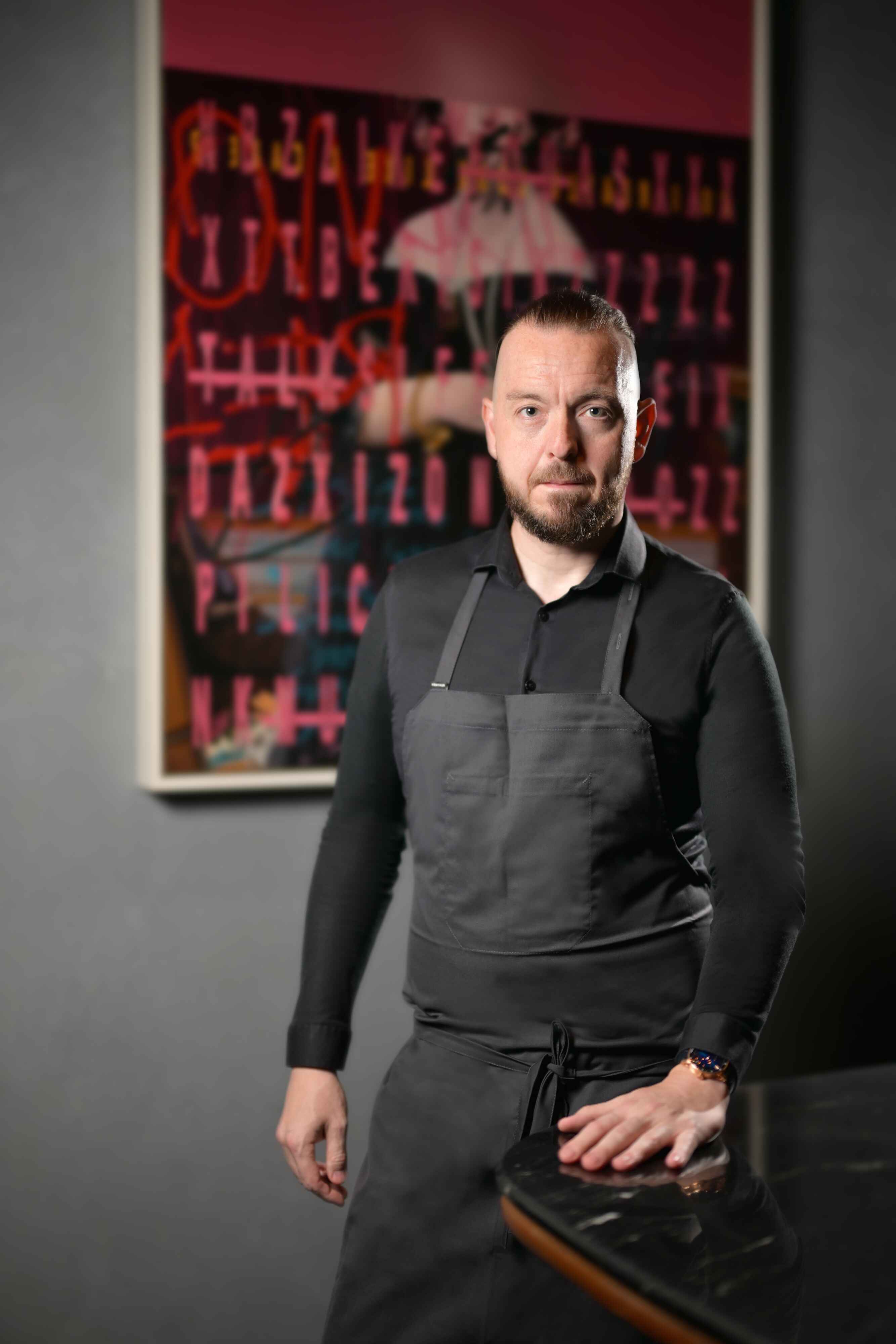Singapore’s culinary landscape is a stage where fortunes are made and lost, and dreams rise and fall with the tides of gastronomic trends. Restaurants emerge with great promise, only to vanish just as swiftly, casualties of the unforgiving winds of competition and ever-changing consumer tastes. The most recent high-profile victim? La Dame de Pic, which shuttered on 31 May.
 Daniele Sperindio, Chef-Owner, I'WA Group
Daniele Sperindio, Chef-Owner, I'WA Group
“I’ve been told that in just the first quarter of this year, over 350 restaurants have opened and around 250 have closed. This certainly tells you something,” quips Daniele Sperindio, the chef-owner of I’WA Group since 2023, which operates Art di Daniele Sperindio and GEMMA.
Against this backdrop of relentless flux, the dynamism and vibrancy of Singapore’s F&B scene is tempered by the harsh realities of the industry. Yet amid this transience, there also exists a resilience: Dining establishments that have withstood the test of time. Some count years; others, decades.
How have these operators managed to triumph? How do they navigate the industry’s tumultuous waters? And what are they doing to ensure their longevity?

"You’re only as good as your last customer and their preferences and feedback play a huge role in our decisions. We find ways to tweak our menus based on customer observations/spending habits.” – Lim Kian Chun, CEO, Ebb & Flow Group
A common gripe among F&B players is the high cost of doing business. From exorbitant rents to escalating operational costs, running a restaurant in Singapore is a pricey affair. The transient nature of consumer preferences adds another layer of complexity, requiring operators to constantly innovate and adapt to stay ahead.
The current high-inflation environment has not been kind. “I have observed an increased sensitivity to high prices. Both individuals and corporations appear to be cutting down on dining-related expenses,” offers Sperindio.
“Naturally with the increasing cost of living, operational costs like rentals and ingredients have also gone up, which then leads to the challenge of keeping experiences affordable,” says Lim Kian Chun, CEO of Ebb & Flow Group, which runs nine concepts, including heritage kopitiam Chin Mee Chin and modern European outfit Sommer.
(Related: Going with the flow)
.jpg)
“On top of rising costs, every operator is still affected by the manpower crunch, which creates challenges in consistency as it takes time to train new staff.” – Christopher Millar, Director of International Business Development, 1-Group
For Christopher Millar, Senior Director of International Business Development at 1-Group, the post-COVID-19 market is challenging. “CBD locations (1-Arden, The Riverhouse) are affected by the ‘work from home’ trend… which means there’s less of an after-work crowd to tap on,” he explains.
Founded in 2005, 1-Group is one of Singapore’s biggest F&B players with more than 20 concepts in its portfolio. “On top of rising costs, every operator is still affected by the manpower crunch, which creates challenges in consistency as it takes time to train new staff,” he adds.
 Kirk Westaway, Executive Chef, JAAN by Kirk Westaway
Kirk Westaway, Executive Chef, JAAN by Kirk Westaway
Kirk Westaway, who has been Executive Chef of JAAN by Kirk Westaway since 2015, echoes this sentiment. “While we’re lucky to have a number of long-standing team members at JAAN, recruiting and retaining staff can be challenging. And that’s true across the board in hospitality,” he says.
- WINNING FORMULAE
- TAPPING ON TRENDS
- GATHER THE FAITHFUL
Winning Formulae
Successful F&B operators employ a variety of strategies to circumvent these challenges. Speaking to a handful of players, a few common themes emerged: Having a strong identity, bolstered by effective marketing and branding tactics; maintaining high standards; and being nimble – paying attention to customer feedback, adjusting as needed, and capitalizing on dining trends.
It also helps to plan for the long-term, cultivate loyalty in customers, and – because no man is an island – partner with other F&B establishments, landlords, and government agencies.

“Providing exceptional quality not only ensures a memorable dining experience, but also gives guests a reason to return. In today’s climate, delivering excellence is key to building loyalty and sustaining business growth.” – Tristin Farmer, Chef Partner & Culinary Director, Culinary Arts Group
When it comes to establishing a strong identity, Westaway heeded his instincts. Instead of treading the path of French cuisine that his predecessors laid out, he chose to present his vision of Modern British cuisine. “It is staying true to my passion and vision… that has helped us carve out our niche in a crowded dining landscape,” he maintains.
With two Michelin stars and a string of accolades under his belt, it’s clear that Westaway has done something right. Another (Michelin) star player is Tristin Farmer, who has led five-year-old Restaurant Zén to its three-star rating since 2021. Farmer recently stepped down from Zén to join the Culinary Arts Group, where he will oversee a new entity in Dubai.
“Regardless of cuisine or restaurant style, maintaining a high standard is essential for attracting and retaining guests,” Farmer declares. “Providing exceptional quality not only ensures a memorable dining experience, but also gives guests a reason to return. In today’s climate, delivering excellence is key to building loyalty and sustaining business growth.”
(Related: Take a trip around the world at these new restaurants)
- WINNING FORMULAE
- TAPPING ON TRENDS
- GATHER THE FAITHFUL
Tapping on Trends
To play the long game, operators must be attuned to emerging dining trends and capitalize on them to stay relevant. “Keeping a pulse on consumer trends while maintaining your unique culinary identity is crucial,” explains Sperindio.
Those we spoke to highlight sustainability and a tendency towards health-consciousness as the most important inclinations right now.
“In a climate that’s increasingly concerned with sustainability, we want to play our part as F&B operators in driving change,” offers Lim. To this end, the Ebb & Flow Group – which was founded in 2018 – is not only working with producers who align with the Group’s ethical standards, but also working towards reducing food waste by exploiting nose-to-tail cooking, finding ways to repurpose off-cuts and ‘ugly’ produce, and prolonging the shelf-life of ingredients.
 Bird's-eye-view of 1-Group’s new concept, 1-Flowerhill at Sentosa
Bird's-eye-view of 1-Group’s new concept, 1-Flowerhill at Sentosa
On the importance of the dining audience, Lim states: “You’re only as good as your last customer and their preferences and feedback play a huge role in our decisions. We find ways to tweak our menus based on customer observations/spending habits. Across the board, we’ve seen an increase in mindful consumption – people want top quality food that is good for the environment and good for their health.”
It’s a similar story at 1-Group and JAAN. “We’ve noticed that vegetarianism, healthy choices for kids, and sustainability are becoming concerns for our customers and we’ve been implementing options across the board,” says Millar. “More than ever, diners want to know the journey their food has taken. Additionally, there’s a noticeable shift towards lighter dining and vegetable-forward menus,” notes Westaway.
- WINNING FORMULAE
- TAPPING ON TRENDS
- GATHER THE FAITHFUL
Gather the Faithful
To encourage and incentivize repeat visits, some restaurateurs offer loyalty programs. Recently, 1-Group launched its 1-insider loyalty program, while Ebb & Flow has its Group Membership. But for other players, loyalty is cultivated through the human touch.
“At JAAN, we prioritize creating a friendly atmosphere and I personally engage with our customers during their time here,” says Westaway. “Are they satisfied with the food and drinks? Do they feel warmly welcomed and well taken care of throughout their visit? And most importantly, do they leave with smiles on their faces? Those are the key questions,” declares Farmer.
 55726.jpeg) Indra Kantono and Gan Guoyi, co-founders, Jigger & Pony Group
Indra Kantono and Gan Guoyi, co-founders, Jigger & Pony Group
Indra Kantono and Gan Guoyi, co-founders of the Jigger & Pony Group, are also big believers in the power of congeniality. The Group, which counts four award-winning cocktail bars under its wing, turns 12 in 2024. “The team at each venue and at each shift must constantly deliver convivial hospitality,” they say. “Guests would return because of the human touch and warmth of the team.”
Your network is your net worth, author Porter Gale wrote in 2013. From 4-hands dinners and guest bartender shifts to co-branding pop-ups and themed events, Singapore’s F&B industry buzzes with collaborations.
“As Singapore’s largest lifestyle F&B portfolio brand, we have long depended on collaborative partners,” explains Millar. “For any supplier that we work with, we make it a must to be a key account so that we’ll always be considered first for any partnership activities.” Maintaining good relationships with key stakeholders like landlords and government bodies is also crucial. It allows the Group to access property databases and participation in nationwide campaigns like F1, and grants to support its initiatives.
Clearly, navigating Singapore’s dynamic F&B scene requires a delicate balance of innovation, adaptability, and consumer-centricity. But by embracing emerging trends while staying true to their culinary identities, operators can carve out their own slice of success in the space.






 Daniele Sperindio, Chef-Owner, I'WA Group
Daniele Sperindio, Chef-Owner, I'WA Group


.jpg)
 Kirk Westaway, Executive Chef, JAAN by Kirk Westaway
Kirk Westaway, Executive Chef, JAAN by Kirk Westaway

 Bird's-eye-view of 1-Group’s new concept, 1-Flowerhill at Sentosa
Bird's-eye-view of 1-Group’s new concept, 1-Flowerhill at Sentosa
 55726.jpeg) Indra Kantono and Gan Guoyi, co-founders, Jigger & Pony Group
Indra Kantono and Gan Guoyi, co-founders, Jigger & Pony Group




 Back
Back
